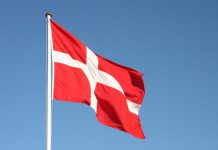 Danish gaming operator Danske Spil has reported a marginal year-over-year increase in revenue for the first quarter of 2020, with declines in its igaming and gaming machine arms mitigated by growth in its lottery business.
Danish gaming operator Danske Spil has reported a marginal year-over-year increase in revenue for the first quarter of 2020, with declines in its igaming and gaming machine arms mitigated by growth in its lottery business.Revenue for the three months to 31 March rose 0.8% to DKK1.23bn (£147.5m/€164.8m/$179.6m), of which DKK640.4m came from its lottery arm, Danske Lotteri Spil.
However the novel coronavirus (Covid-19) pandemic impacted its igaming division Danske Licens Spil and its gaming hall arm Elite Gaming, as well as forcing a write-down in asset values that hit the operator’s bottom line.
Revenue for Danske Licens Spil was down 0.8% to DKK511.3m, which the operator blamed on the suspension of all major sporting events from mid-March leading to a decline in sports betting. However Swush, its daily fantasy sports brand, reported a slightly increased contribution, of DKK2.1m.
Denmark was one of the first countries to implement a nationwide lockdown from 13 March, and this resulted Elite Gaming’s Q1 revenue falling 18.7% to DKK75.3m.
The sporting suspensions and closure of land-based outlets then had a knock-on effect on Danske Spil’s tax contribution and retailer commissions. Takes paid to the state were down 6.7% to DKK138.1m, while commission payments declined 12.5% to DKK153.1m.
Other costs related to the gaming business fell marginally to DKK77.5m, leaving an operating profit of DKK860.4m, up 5.0%.
Danske Spil saw personnel costs rise marginally, with other external expenses growing to DKK173.8m as a result of increased investment in its IT infrastructure, though the decline in gaming tax and commissions saw profit before financial items rise 2.8% to DKK542.1m.
A sharp rise in financial costs hit the operator’s bottom line, however. Total finance related costs rose to DKK31.8m, compared to DKK1.0m in the prior year, which was blamed on fair value charges in its securities portfolio. This, Danske Spil noted, was due to the uncertainty created by Covid-19 impacting the stocks and bonds market.
Once income tax payments totalling DKK112.2m were factored in, the operator’s net profit for the quarter therefore fell 6.4% to DKK398.1m.











